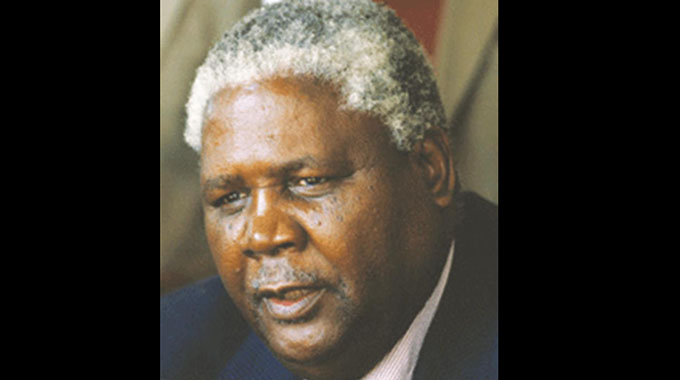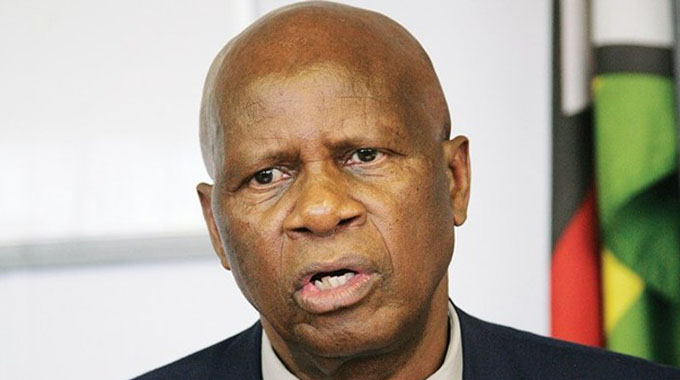Remembering the man they called Father Zimbabwe

Sifelani Tsiko Senior Writer
One famous American novelist and social critic once said: “History is not about the past. It’s about the present. We take it with us, we cannot escape our history . . . It is through this prism of our history that we see the world. What was done in the past and the present affects us now whether directly or indirectly.”
His message resonated powerfully on June 19 as Zimbabwe remembered the day on which Joshua Mqabuko Nyongolo Nkomo was born in 1917 – some 100 plus one years ago.
Father Zimbabwe, as he was affectionately known, had an enduring charisma and stage presence and was a major source of inspiration for the country’s struggle for independence.
His vision for unity, for land equity, social, economic and political rights, can be found by looking not to the future but to the past in which his visionary and influential political role shaped the country’s nationalistic politics.
Nkomo’s legacy cannot be wished away. It’s part of us and we walk with it in every Zimbabwean way.
He was Zimbabwe’s foremost nationalist figure who played a critical role in bringing about not only the country’s independence, but national healing and reconciliation among Zimbabweans after the political disturbances of the early 1980s.
His legacy in terms of unity, national healing and reconciliation is still enduring.
Thoughts about his life, his stature, his unifying role, his bold and unyielding fight for land, social, political and economic rights for the majority of blacks should inspire us and the young generation about how his life and sacrifice impacted on our lives.
The name Joshua Mqabuko Nyongolo Nkomo should inspire some reasoning, upliftment and sharing of perspectives about the future discourse of our country’s national politics.
He was a man of the people who taught this nation the importance of unity and the value of the struggle for land in shaping us as a nation.
On the whole, the celebration of his birthday on June 19 should inform all generations in this country of their history and why it is important and also keeping up with current situations which also still require Nkomo’s great message of peace and national reconciliation.
And no matter the differences that we may hold as a people, it is still very important to preserve Nkomo’s legacy.
The veteran nationalist was born on June 19, 1917 at Semokwe in Kezi District, Matabeleland South.
He was the third born child in a family of eight. He would have turned 101 this year.
His father Thomas Nyongolo Letswansto Nkomo was a teacher and lay preacher who was trained and worked for the London Missionary Society.
Nkomo was a founding leader of the Zimbabwe African People’s Union (ZAPU) and worked with numerous other nationalists in the struggle for the liberation of Zimbabwe.
After primary schooling in Rhodesia, he went to South Africa to complete his education in Natal and Johannesburg. Returning home in 1945, he worked for the Rhodesia Railways and by 1951 had become a leader in the trade union of the black Rhodesian railway workers. In 1951 he obtained an external BA degree from the University of South Africa, Johannesburg.
Nkomo became increasingly political, and in 1957 he was elected president of the African National Congress (ANC), the leading black nationalist organisation in Rhodesia. When the ANC was banned early in 1959, Nkomo went to England to escape imprisonment.
He returned in 1960 and founded the National Democratic Party (NDP) in 1961, when the NDP was banned in turn, he founded ZAPU. The white-minority government of Rhodesia held Nkomo in detention from 1964 until 1974. After his release he travelled widely in Africa and Europe to promote ZAPU’s goal of black majority rule in Rhodesia.
Nkomo helped lead the guerrilla war against white rule in Rhodesia alongside Robert Mugabe, who headed the Zimbabwe African National Union (Zanu) after the ouster of Ndabaningi Sithole.
The two groups were joined in an uneasy alliance known as the Patriotic Front after 1976.
When the country gained independence in 1980, there were serious differences between Nkomo and Mugabe which culminated in political disturbances.
After resolving their differences, they agreed in 1987 to merge their respective parties to bring unity and peace in Zimbabwe.
The signing of the Unity Accord on December 22, 1987 led to the end of the civil unrest and brought unity to the country. It was historic.
In 1990, Nkomo became Vice President and played a critical role in shaping the country’s social and economic development.
In 1996, Nkomo was diagnosed with prostate cancer. His deteriorating health forced him to retreat from public life, although he continued to hold office until his death in 1999.
He died on July 1, 1999, leaving behind a solid and rich legacy of the nationalist struggle, peace and unity.
Nkomo was laid to rest at the National Heroes Acre on July 5, 1999 where an estimated 100 000 mourners thronged the shrine to pay their last respects.
Father Zimbabwe or Chibwechitedza’s legacy lives on. And, whether we like it or not, whether we have differences or not, his legacy should bind us all as Zimbabweans. His message of peace and unity must not be drowned by our differences. It must live on.









Comments